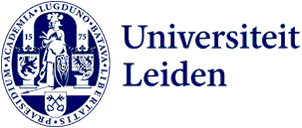
Research assistants’ course: icing on the cake for Honours College Law students
According to Law student Jasmijn van Lochem, you can learn a lot in seven months. For the ‘Onderzoeksassistent’ (Research Assistant) course, part of the Honours College Law, she conducted research on the African Court on Human and Peoples’ Rights in collaboration with Misha Plagis, Assistant Professor of Public International Law. Here, they explain what this research project involved. Even though the two hadn’t seen each other in months, it was still clear they ‘really were a great team.'
When the research projects for the Onderzoeksassistent course at the Honours College Law were announced last year, Jasmijn was immediately drawn to Misha’s project. The project was called Outreach Strategies for Strengthening States' Commitment to Africa's Human Rights Court – quite a mouthful, but that didn’t put Jasmijn off.
She explains: ‘I’d already visited both Northern and Southern Africa and was amazed at the diversity in cultures. So I wanted to learn more about these cultures and I developed a special interest in topics related to Africa. When I read about this research project, it instantly appealed to me because it offered added depth to the topic of human rights. That was something I felt the bachelor’s law programme lacked.’
African Charter
What was Jasmijn and Misha’s research about? To understand that, we need more information about the African Charter on Human and Peoples’ Rights. Most African countries have signed this Charter and are referred to as its Member States. However, there are various levels of membership, and so a country’s signature does not automatically mean that it recognises the jurisdiction of the African Court on Human and Peoples’ Rights.

Only 34 Member States recognise the jurisdiction of the African Court on Human and Peoples’ Rights (the Court) and only eight Member States allow individuals and NGOs in their country to bring cases before the Court directly. Naturally, the Court wants more Member States to recognise its jurisdiction, and they certainly want more than eight Member States to allow them to hear individual disputes.
Aim of the Research Project
The research project is part of a much broader project led by a Canadian researcher. Misha and Jasmijn focused on the reasons why states agree or refuse to recognise the African Court’s jurisdiction to hear individual disputes.
Misha explains more about her specialisation: ‘Many people see my specialisation as a niche, because relatively little research has been conducted on African law. But the African Charter affects more than twice the number of people affected by the European Convention on Human Rights.’ She laughs, adding: ‘So it depends what you understand by the word “niche”!’
Jasmijn conducted a study of the existing literature: ‘I read around 60 articles, of which 27 ultimately proved to be relevant for our research question. By summarising these articles, I was able to contribute to the larger research project.’ Jasmijn’s contribution will be included in the overarching research project, the results of which will be published in 2024.

‘I learnt more than I’d expected to’
Jasmijn says she learnt more from the research project than she’d expected to. ‘In hindsight, I certainly gained more from this research project than I would have done from a standard course. Nowhere in the bachelor’s programme do you learn to work together like this and conduct such an in-depth literature study. I also learnt a huge amount about a topic that I find particularly fascinating. This research project is definitely the icing on the cake of my entire honours track.’
'I think it’s important that students learn skills that they can apply in other areas'
Misha notices that bachelor’s students often have little experience with conducting literature studies. The research project is different in that respect. ‘In each project, you learn a huge amount about a specific topic. But I also felt it was very important that my project taught students skills that they can use in other areas. That’s why I let Jasmijn also do her own extensive literature study.’
That said, Jasmijn says she wasn’t thrown in at the deep end: ‘To begin with, Misha gave me some literature to help me on my way, but as the project progressed I was able to search for more literature myself. If I didn’t understand something or I was unsure, I could always go to the top expert on the topic. Research projects are unique in that compared to standard courses, there’s far more individual supervision involved. You have to discuss things together if you want to achieve a good end result.’ Misha laughs, adding: ‘We really were great a team!’
About this course
The Onderzoeksassistent (Research Assistant) course is for third-year bachelor’s students at Leiden Law School who have been admitted to the Honours College Law. Twice a year, students can sign up to assist with a faculty lecturer’s research project. This gives them the opportunity to contribute to faculty research and discover the practical side of conducting research.
Misha explains: ‘The Honours College Law asks us to submit proposals and students respond if they are interested in the topic. A selection of students are then invited for an interview and the procedure is like applying for a job.’
If you’re a lecturer and you’re interested in opportunities to work together with the Honours College Law, please contact us at honours@law.leidenuniv.nl.
